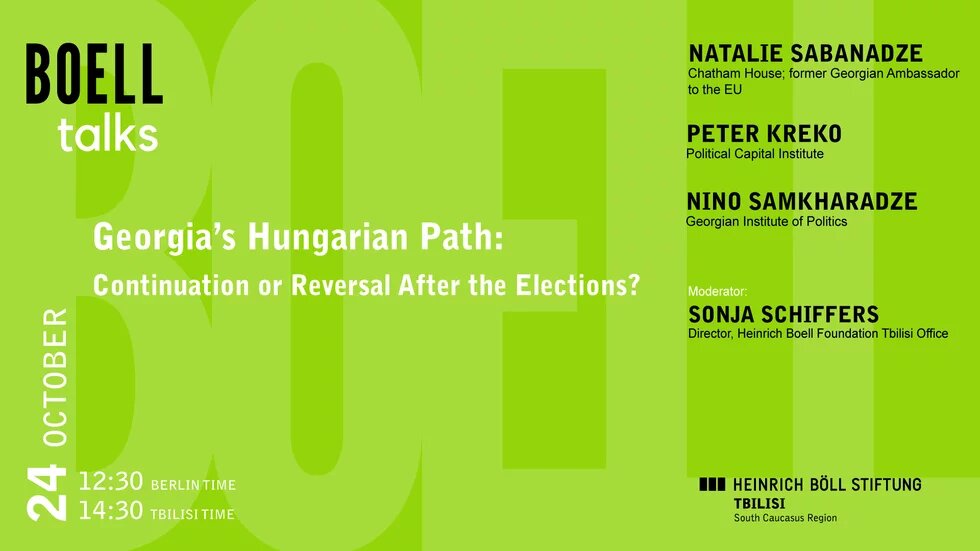The Heinrich Boell Foundation Tbilisi Office – South Caucasus Region held a discussion titled Georgia’s Hungarian Path: Continuation or Reversal After the Elections. For those who couldn’t attend live, we are sharing the recording of the Boell Talks discussion.

Hungary’s illiberal regime and the consolidation of power under Victor Orban are still widely discussed. However, its foreign policy dimension receives less attention. Orbán’s political model has become a source of inspiration for closet autocrats around the world - and especially in Europe. It is now being imitated in several countries.
As Georgia’s ruling party Georgian Dream began to change its course, gradually adopting illiberal rhetoric and consolidating power, Orbán's national-conservative Fidesz party and Georgian Dream became increasingly close. The Georgian government found an EU government it could emulate while claiming it was still following the European – and not the Russian – path.
Pivotal parliamentary elections on October 26 will show whether Georgia’s Hungarian trajectory can survive. The ruling Georgian Dream party claims to be determined to win an absolute majority; the opposition aims to form a coalition that would return the country to a democratic, pro-European track.
Boell Talk | Georgia’s Hungarian Path: Continuation or Reversal After the Elections. - Heinrich Boell Foundation South Caucasus
 Watch on YouTube
Watch on YouTube
The discussion explored the following key questions:
To what extent and how has Georgia copied the Hungarian illiberal model?
Why are the potential costs of the Hungarian model even higher in Georgia?
What lessons from Hungary should Georgia’s democrats draw?
What are the plausible election outcomes, and what scenarios could follow?
The speakers included:
Natalie Sabanadze, Chatham House; former Georgian Ambassador to the EU; author of Georgia’s Imitation Game: Hungary, Russia and the Rise of the Anti-Liberal International, published by the Heinrich Boell Foundation Tbilisi Office
Peter Kreko, Political Capital Institute
Nino Samkharadze, Georgian Institute of Politics
Sonja Schiffers, Director of the Heinrich Boell Foundation Tbilisi Office - South Caucasus Region moderated the discussion.

